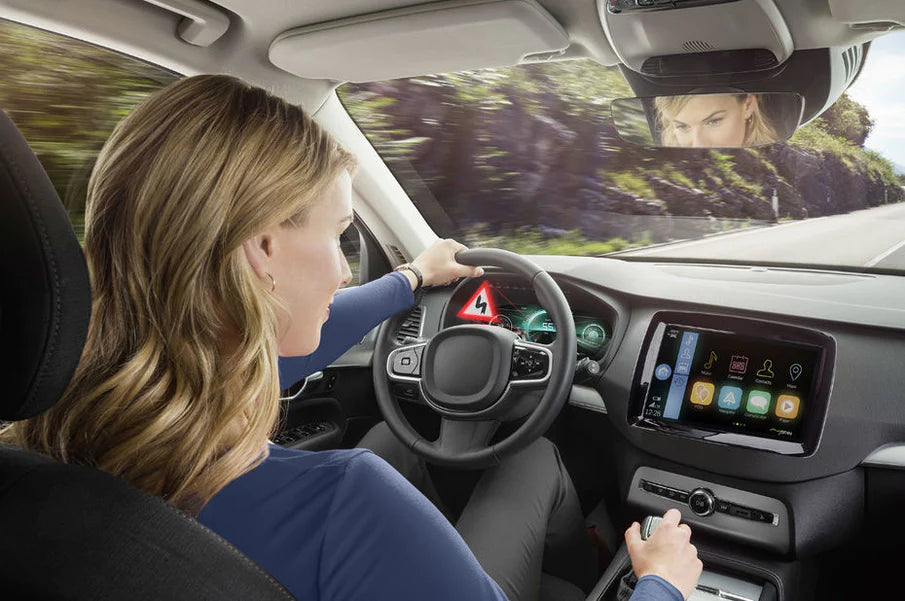The new version of CarPlay is scaring the car industry

The most controversial new feature in the auto industry isn't an autonomous driving system or some form of electrification. The hot topic these days is CarPlay - yes, the familiar interface that has been insidiously working its way into the hearts and minds of drivers around the world since its beautiful demonstration at the 2014 Geneva Motor Show.
The plug-and-play platform has become so ubiquitous that it now equips 85 percent of new cars sold in Europe. Even more compelling, 79 percent of European car buyers consider it a must-have feature when buying their next car, according to Apple's internal statistics. This critical metric has given Apple considerable leverage when it comes to negotiating with automakers, and the next generation of CarPlay announced in June is so potentially revolutionary that it threatens to upend the relationship between automakers and the Cupertino-based consumer electronics giant.
The problem starts with the extreme integration of the new generation of CarPlay. Rather than embedding a simplified mirror of the iPhone in a central multimedia touchscreen, the redesigned interface takes control of all interior displays, including the dashboard and corresponding gauges, as well as auxiliary elements such as climate controls. This move is significant not only because of its unprecedented takeover of a vehicle's pre-existing architecture, but also because it has the potential to generate significant financial benefits for Apple.
At Apple's recent developer conference, a feature that allows CarPlay to drive to a gas station and pay for gas was already mentioned. The idea isn't new; according to Car & Driver, GM tried it back in 2017, but then abandoned it. But the feeling in the industry is that Apple's longstanding ability to take on a significant challenge and create an elegant, intuitive solution means that this time around, it's more likely to be quickly and widely accepted. Apple really wants to be the major player in the development of in-car electronics in our dashboards.
This explains why automakers are feeling more threatened than ever by the idea of turning over their user experience to a savvy outsider. As analysts explain, "Automotive is a very important sector for Apple because it's simply another expansion of its ecosystem. Its goal is to become more and more embedded in consumers' lives." Monetizing information from gas stations is just the tip of the iceberg; Apple CarPlay's integration of apps for everything from finding parking spaces to locating electric vehicle chargers suggests the monetization possibilities are endless.
While some brands have resisted CarPlay implementation (we're looking at you, Rivian and Tesla), the vast majority of automakers must now decide whether they're willing to cede so much control to Silicon Valley. The scale of the implementation is staggering - and it already has a considerable foothold among consumers, unlike the much-talked-about Apple Car. If you want to know more, you can read our article about the Apple Car. As analyst Horace Dediu told Reuters, "Forget the Apple Car - Apple CarPlay is a bigger deal. It's very likely to expand to millions and millions of cars, if not hundreds of millions."
Some automakers say they are working with Apple on the next-generation system, but CNBC suggests many may be hesitant to take this next giant step. Perhaps the most telling observation comes from AutoForecast Solutions analyst Conrad Layson, who says, "This is a really tough time in the industry, where automakers think they're still building cars. They aren't. They're building software on wheels, and they don't know it, and they're trading it in."


Share:
7 Apple Carplay tips to know!
Does Jeep Cherokee have Apple Carplay?